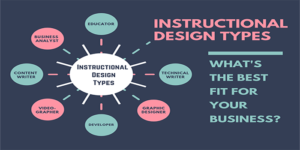
Teacher education is a professional field that focuses on the preparation of teachers for work in educational institutions. Programs typically include hands–on practicum experiences, as well as coursework in educational theory, pedagogy, and curriculum design. Teacher education programs may lead to certification to teach in a specific subject area, such as elementary education, or to teach in a certain grade level, such as secondary or postsecondary education. Teacher education programs may also include courses in child development, educational technology, and special education.
Teacher Education Training Course
Teacher Education Training Courses are designed to prepare individuals to become teachers in a variety of educational settings. These courses may include topics such as classroom management, instructional strategies, educational technology, curriculum design, and assessment. In addition to classroom instruction, courses may also include field experience, such as observing and teaching in a school setting. Some courses may also cover the history and philosophy of education. Upon completion of a Teacher Education Training Course, students may receive certification from the state in which they completed the program.
What is the Role of Teacher Education?
Teacher education helps to ensure that those entering the teaching profession have the skills, knowledge, and understanding required to help students reach their potential. Teacher education programs provide aspiring teachers with the necessary training to develop effective lesson plans, use appropriate assessment techniques, and create a positive learning environment for their students. Teacher education also prepares teachers to be reflective practitioners, able to apply research–based best practices and continually improve their teaching strategies to better meet the needs of their students.
What are the Types of Teacher Education?
1. Initial Teacher Education: This type of education focuses on the practical, theoretical and reflective aspects of teaching. It is typically taken in university and can include undergraduate degrees, postgraduate degrees, diplomas and certificates.
2. Professional Development: This includes courses taken by teachers to stay up–to–date with new teaching methods and best practices. It can also involve attending seminars, workshops and conferences.
3. Continuing Professional Development (CPD): This type of teacher education is often taken by experienced teachers to further their knowledge and skills. It can involve attending courses, seminars, workshops, conferences and e–learning.
4. Online Courses: These are becoming increasingly popular as they allow teachers to take courses from the comfort of their own home.
5. Mentoring: Experienced teachers can mentor new teachers and help them develop their skills and knowledge.
6. On-the-Job Training: This involves new teachers learning from experienced colleagues through observation and practice.
Best University of Teacher Education in India
The National Council for Teacher Education (NCTE) is the apex body for regulating and standardizing the teacher education system in India. It accredits and recognizes universities, colleges and other institutions offering teacher education programmes. Some of the best universities of Teacher Education in India are:
1. Jamia Millia Islamia – Delhi
2. Indira Gandhi National Open University – Delhi
3. National Council for Teacher Education – Delhi
4. University of Delhi – Delhi
5. University of Mumbai – Mumbai
6. University of Calcutta – Kolkata
7. Aligarh Muslim University – Aligarh
8. Banaras Hindu University – Varanasi
9. University of Madras – Chennai
10. Savitribai Phule Pune University – Pune
What is Structure of Teacher Education?
Teacher education typically consists of three components: pre–service education, continued professional education, and induction. Pre–service education is the initial training that teachers receive prior to entering the profession.
This typically includes a combination of coursework in pedagogy, educational theory, and subject–specific content, as well as supervised internships or student teaching experiences. Continued professional education refers to the ongoing learning that teachers engage in to stay up–to–date on best practices in their field.
This may include attending workshops, conferences, or completing additional coursework. Induction refers to a period of mentorship and support for new teachers during their first few years in the profession. This allows teachers to gain experience in their classroom and receive guidance from more experienced educators.






